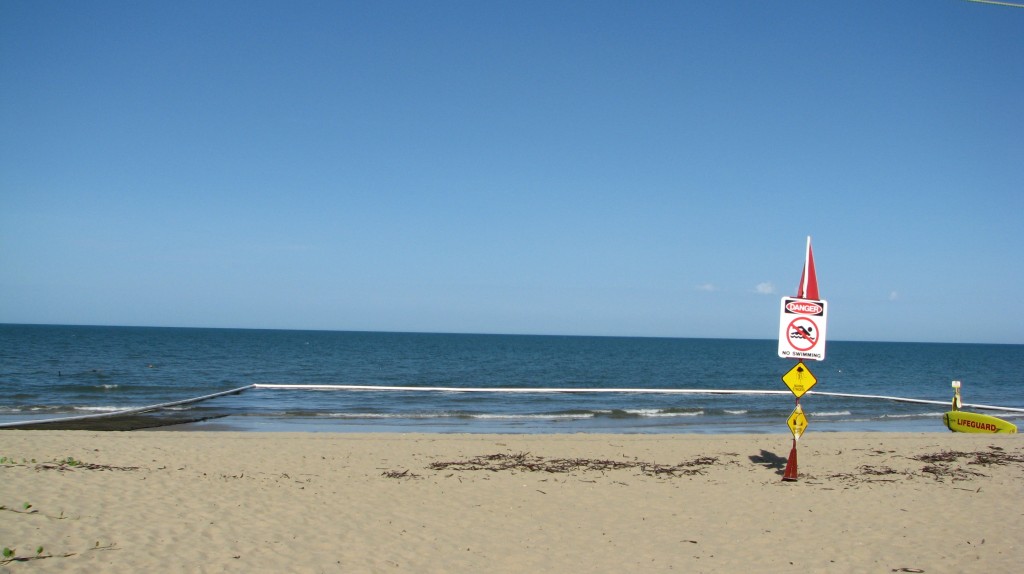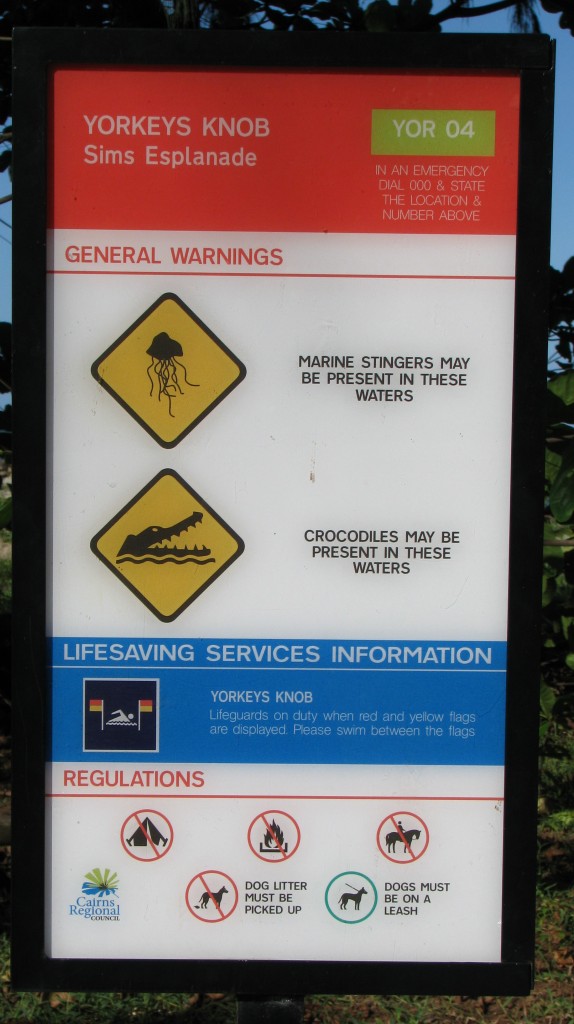Our family enjoys the beautiful beaches of North Queensland however we know that the waters of northern Australia are home to dangerous jellyfish. Contact with some of these jellyfish will cause devastating pain, may cause severe illness and have the potential to be deadly. I am often surprised at the risks tourists take as a result of being unaware of these dangers.
Dangerous marine stingers occur in Queensland waters from Gladstone north. From Gladstone to Townsville the marine stinger season is December to March and from Townsville to Cape York it is October to June. Marine stingers are also a risk to swimmers at Northern Territory and West Australian beaches. It should be noted that although the risk is greatest during stinger season, people are occasionally stung in other months.
The most dangerous of the marine stingers are the Box Jellyfish (Chironex) and Irukandjji, however, stings from other jelly fish including the Bluebottle (Physalia), Hair Jelly (Cyanea), Jimble (Carybdea), Fire Jelly (Morbakka) and Little Mauvre Stinger (Pelagia) are also possible.
Box jellyfish are large and almost transparent. They are usually found in shallow waters. A sting from a Box jellyfish (Chironex fleckeri) is immediately, devastatingly painful and may result in the victim suffering a cardiopulmonary arrest.
Irukandji jellyfish are tiny (1-2 cm) and may potentially find their way into stinger net enclosures. They may be found at reefs and near islands as well as in the waters off mainland beaches. While an initial sting from an Irukandji jellyfish may only be mild, severe, generalized pain and backache typically occurs 15 minutes after the sting. People stung by Irukandji have an overwhelming sense of doom and may become gravely unwell with vomiting, sweating and disturbances to their blood pressure.
Important steps to protect your family members from marine stingers:
- Only ever swim at patrolled beaches between the red and yellow flags.
- Only swim in areas of the beach that are protected by stinger nets.
- During stinger season even if swimming in a stinger net enclosure, ensure all family members wear a full body stinger suit.
- Always read and obey safety signs.
- Never swim at a beach that is closed.
- Do not allow your children to touch jellyfish that are lying on the beach as these may retain their ability to sting.
- If you have your own boat always carry a bottle of household vinegar and ensure you have a way to contact medical aid in case of an emergency.
In the event that a family member comes into contact with a marine stinger the following first aid measures should be undertaken:
- Call for help. Dial 000 for an ambulance and get the attention of life-savers on the scene.
- Pour vinegar onto the sting ideally for at least 30 seconds.
- Administer CPR if necessary.
- Seek medical attention at hospital for definitive care.

The stinger net at Yorkey’s Knob North Queensland. The beach was closed due to marine stingers this day.
© Copyright 2013 Danielle, All rights Reserved. Written For: Bubs on the Move




Good tips, and a roundup of everything parents need to know. There are some serious sea dangers up your way. I’m going to post soon on the bluebottles and sea lice we get here in NSW, but they’re not really dangerous at all, just itchy and annoying.
Thanks Seana,
I hadn’t seen your own blog but have just had a look. It looks great. I will be sure to share your own post about bluebottles and sea lice when you get it up. I have had personal experience of both – very unpleasant if not dangerous.
Whenever I mention our great beaches on my blog I always make references to Stinger enclosures, just so that tourists become familiar with the concept. Great detail in your post.